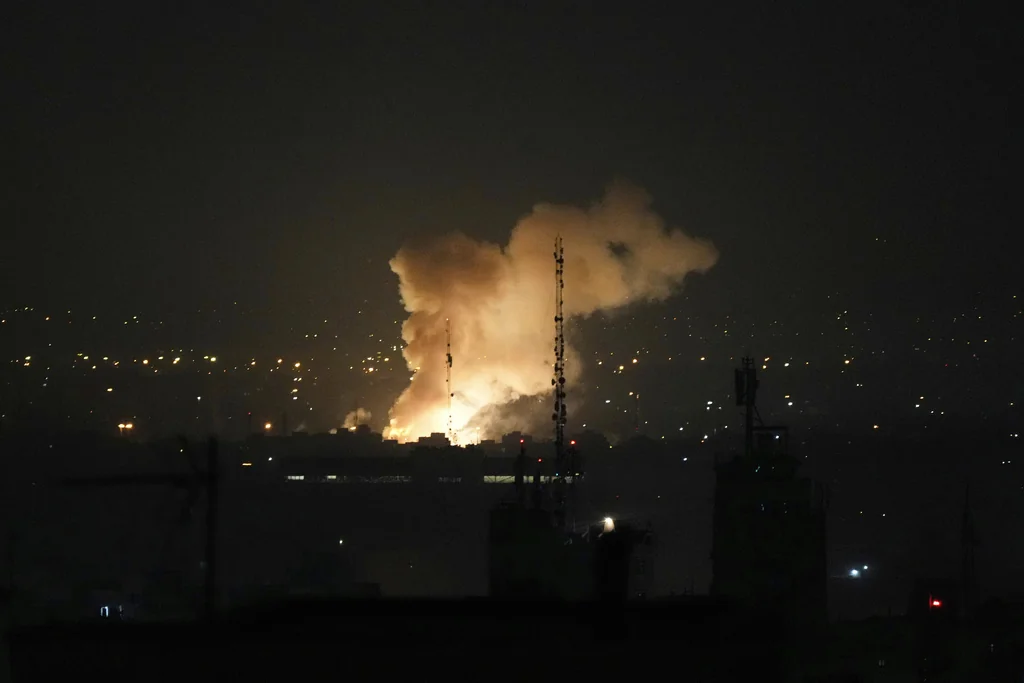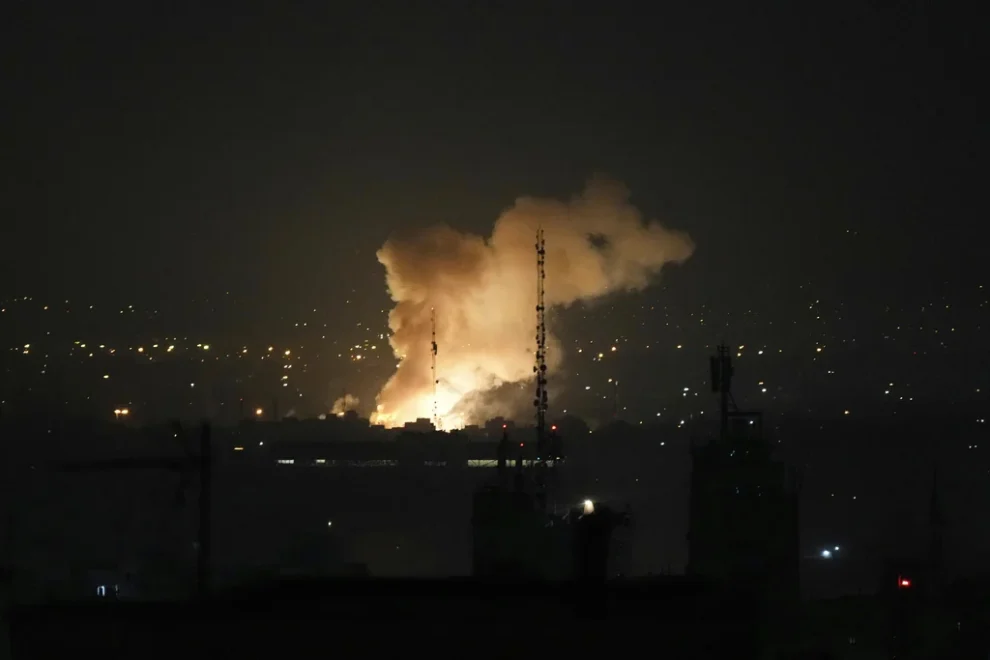Israel unilaterally conducted a significant military operation targeting Iran’s nuclear program on Thursday, hours after President Donald Trump cautioned Israel against one in favor of continuing their diplomatic efforts.
Details of the damage Israel inflicted are still being assessed, though an Israel Defense Forces spokesperson called it a “preemptive, precise, combined offensive” and warned Israeli civilians to be prepared for a retaliatory attack.
“Following the State of Israel’s preemptive strike against Iran, a missile and drone attack against the state of Israel and its civilian population is expected in the immediate future,” Israel Katz, the defense minister, said.
Israeli Prime Minister Benjamin Netanyahu said in a televised address, “Moments ago, Israel launched operation Rising Lion, a targeted military operation to roll back the Iranian threat to Israel’s very survival,” adding, “This operation will continue for as many days as it takes to remove this threat.”
Dozens of Israeli fighter jets were involved in what the spokesperson described as “the first stage” of the operation targeting “dozens of military targets, including nuclear targets in different areas of Iran.”
Iranian state media reported that Gen. Hossein Salami, the chief commander of Iran’s Islamic Revolutionary Guards Corps, senior IRGC commander Gholamali Rashid, and nuclear scientists Fereydoun Abbasi and Mohammad-Mehdi Tehranchi were killed in the strikes.
The United States was not involved in the attack, though Israel warned them ahead of time, according to Secretary of State Marco Rubio. He also told Tehran not to attack U.S. troops or bases in the Middle East.
Fearing a possible retaliatory attack, on Wednesday, the State Department evacuated personnel from Iraq, and Secretary of Defense Pete Hegseth approved the evacuation of military families from undisclosed bases across the region.
On Thursday, before the Israeli strike, Trump warned that an Israeli military operation could happen but held out optimism that the U.S. and Iran could come to a diplomatic solution to capping Iran’s nuclear program.
“We remain committed to a Diplomatic Resolution to the Iran Nuclear Issue! My entire Administration has been directed to negotiate with Iran. They could be a Great Country, but they first must completely give up hopes of obtaining a Nuclear Weapon,” he posted on Truth Social.
Republican reactions to the attacks were supportive of the strikes. Sen. Lindsey Graham (R-SC) wrote minutes after the strikes, “Game on. Pray for Israel,” while Sen. Ted Cruz (R-TX) said, “Israel is acting to defend themselves … and we should stand unequivocally with the state of Israel.”
Democratic reactions were less enthusiastic, with Sen. Elizabeth Warren (D-MA) saying in a television appearance, “This is deeply disturbing. This has the possibility of spinning entirely out of control,” adding, “We need the administration to negotiate.”
Trump didn’t want a strike to compromise a deal. “As long as I think there is agreement, I don’t want them going in because I think that would blow it,” Trump said during an event at the White House. “It might help it, actually, but it also could blow it.”
The U.S. and Iran were set to meet this weekend for the sixth iteration of their nuclear negotiations.
Israeli leaders have long sought an opportunity to take out Iran’s nuclear program, and viewed it as an existential threat. This was what they viewed as their opportunity to prevent Tehran from obtaining a nuclear weapon.
The IDF spokesperson said, “Today, Iran is closer than ever to obtaining a nuclear weapon,” and that “weapons of mass destruction in the hands of the Iranian regime are an existential threat to the State of Israel and a significant threat to the wider world.”
Hegseth told lawmakers on Wednesday that there “are plenty of indications that they have been moving their way towards something that would look a lot like a nuclear weapon.”
Earlier on Thursday, the Iran’s foreign ministry said it would launch a “new uranium enrichment facility in a secure location” and install advanced centrifuges at another enrichment center in response to the International Atomic Energy Agency’s Board of Governors vote in favor of a resolution declaring Tehran was not in compliance with its nonproliferation requirements.

The Iranians have rapidly increased the amount of enriched uranium in their possession, according to a recent report from the IAEA. As of May 17, Iran had amassed about 900 pounds of uranium enriched up to 60%, an increase of almost 50% from their last report issued in February. Getting the uranium from 60% enrichment to 90% enrichment, which the IAEA uses as the benchmark for weapons-grade uranium, would only require “mere steps,” according to Gen. Michael Kurilla, the head of U.S. Central Command.
It only takes about 55 pounds of 90% enriched uranium to construct a simple nuclear weapon.
“Should the Regime decide to sprint to a nuclear weapon, it is estimated that current stockpiles and the available centrifuges across several enrichment plants are sufficient to produce its first 25kg of weapons grade material in roughly one week and enough for up to ten nuclear weapons in three weeks,” Kurilla said in his written testimony to Congress this week.
Israel and Iran are enemies, though they have rarely engaged in direct military operations against one another, instead mostly pursuing covert espionage operations. However, that changed in the aftermath of Hamas’s Oct. 7, 2023, terrorist attack that prompted the current instability in the region.
Israel has fought many of Iran’s proxies in the region since then, destroying much of Hamas and Hezbollah in Gaza and Lebanon, respectively. The Israelis have also fought against the Houthis in Yemen in a tit-for-tat aerial campaign.
US WARNS ALLIES NOT TO ATTEND TWO-STATE SOLUTION CONFERENCE
Amid the wider conflict, there were two instances in which Iran retaliated directly at Israel, once in April and again in October 2024. Tehran fired dozens of ballistic and cruise missiles at Israel in both cases, the vast majority of which were intercepted. Israel had the help of the U.S. and other allies.
Israel has a multilayered air defense system in place that protects it from a wide range of missiles, but an Iranian response that mirrors the size and scope of the last two attacks poses significant risks for Israel.
























